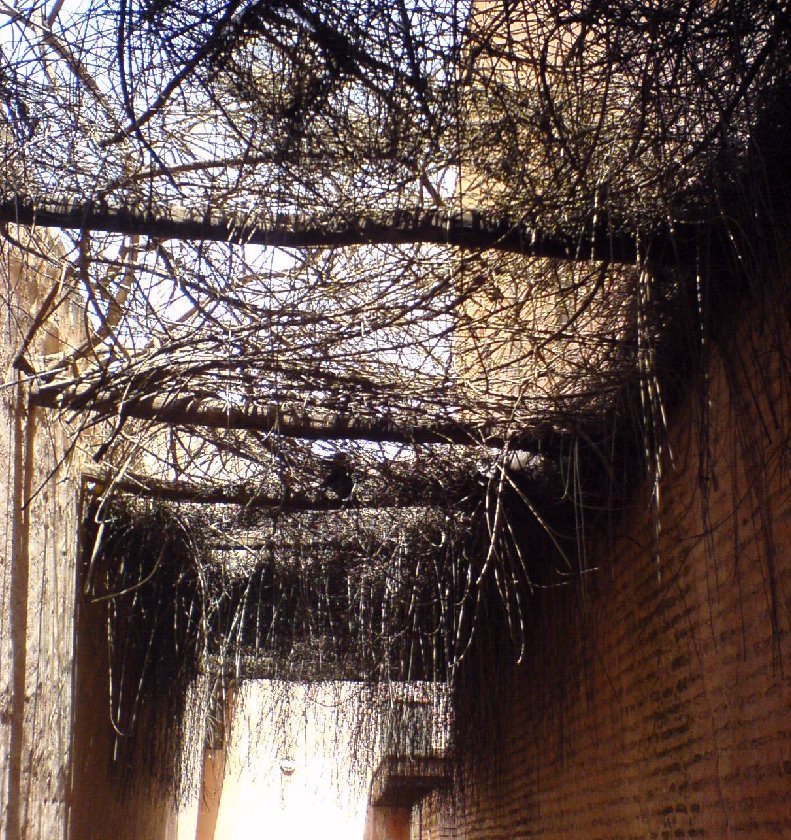
In my childhood summer home , where I spent hours playing alone, I came to know all the trees and plants intimately. Often, I incorporated them into my fantasy play (being a great fan of Cervantes Saavedra, I had my own Indian version of the adventures of Don Quixote de la Mancha (Don Quijote) happening in my head), mostly as villains, sometimes as props. For a young boy abandoned to his wits in a large place, this really helped me kill the time without going insane. Of course, if I indeed went insane, it was difficult to tell in that place.
My favorite tree was a fallen drumstick tree (Moringa oleifera) that never quite died. The tree was in its supine position from as far as I can remember. But except for its disabled status, she was quite alive and functional. In fact, it suited everyone just fine for the tree to be like that, because you could access the drumsticks with great ease. I love the tree because it could be alternatively a bridge over an imaginary moat, a narrow passage into the castle, a treacherous forest as the branches were still thickly foliated) or a fallen soldier. The tree had its branches upturned to heaven, and if you walk as far as you could without breaking the branches and look into the low walls of the snake temple. Generally people avoided this part of the property just in case there were any snakes. I don' think it ever occurred to them that snakes probably didn't know that the snake temple was built in their honor.
We also had a moat around the house (now you are wondering, what sort of a house is this? Those who know me, knows the answer. Let's just say, it was no ordinary house) that had dried up from disuse and there were thick vines growing in them. These wines, 6 or 8 inches thick connected the trees from one end of the moat to the other and formed sort of a net covering the moat. I organized a posse one summer to go down the abandoned steps into the moat to clean the floor of all the debris and thorny sticks that had fallen in, so we could create a little hideaway there. Old plastic chairs were brought in and the floor was lined with newspapers. For a few days, we even cut some vines and used them to swing from one of the moat to the other side until all of us had lost enough skin from the friction and minor accidents. Just Tarzans, no Janes.
I am genuinely surprised that nobody was seriously hurt in these misadventures. The elders never seem to miss us during these events. Once in a while, someone would get an allergic reaction from poison ivy or poison oak and all of us would be yelled at for that. I have seen a snake or two, but no real close encounters.
When jack fruits were in season, the smell betrayed a ripe fruit that was at the bottom of the tree. You could always get a servant to cut it up and bring it to our den. Or imli (Tamarind, Tamarindus indica) with salt. Or large citrus fruits (I don't know what they are called, they are larger than grapefruit, but not pink.) There was always something to eat. I think I got all my crazy imagination from this place. In fact, I keep going back to that time and place for inspiration, even after all these years, when I try to write.
After seventeen years, I had a chance to visit the house a few years ago. I had meant to walk by my favorite drumstick tree when I was there. But I was told that nothing remained, no trees or vines. When I was driving in through the large arches, I think I was most excited about connecting with the moat and the drumstick tree. Without all of that, it wasn't the same place.
A few years ago, I was in a tiny hamlet called Alajar in Spain. Hiking through the country paths, I took a detour and ended up by a river and an abandoned house. It occurred to me then that the childhood memories were transplanted to another place. Same time, different place.
I am convinced that I can find my fallen drumstick tree and the moat somewhere in this world. Perfectly preserved. Just waiting for me to show up and discover.
I just have to look a lot harder.